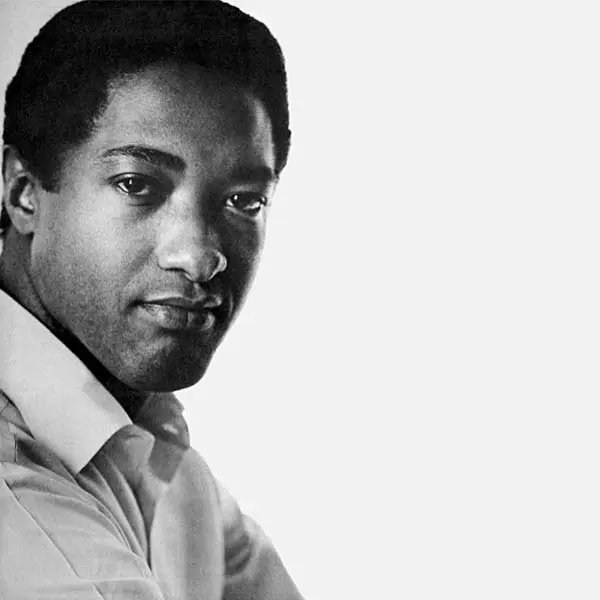Cooke began his songwriting career when he was part of the hugely successful gospel group The Soul Stirrers. During his six years with the group he established a new standard for gospel expression with songs such as “Touch The Hem of His Garment”, “Be With Me Jesus” and “Jesus Wash Away My Troubles”. But at the height of his fame in the gospel world, Sam moved over to popular music – Sam didn’t “cross-over” he “combined” – blending sensuality and spirituality, sophistication and soul.
“Sam had started writing more and more. He carried a blue spiral notebook with him everywhere he went, filling it up with his lyrics. Sometimes even jotting down words while he was talking to you. One time he showed Herb Alpert a song he was working on, and he asked me what I thought of the lyric, and it really seemed trite to me. (So) I asked him what does the song go like, and he pulled out his guitar and started playing. And all of a sudden this thing that looked so corny on paper just turned into this magical event. ‘Cause he had a way of phrasing, a way of presenting his feelings that was uniquely his. I mean, he was talking right to you, he wasn’t trying to flower things up with words that didn’t connect. He had a very clear way of expressing himself”. – Quote from Lou Adler from “The Triumph of Sam Cooke Dream Boogie” by Peter Guralnick.
““If you listen to his lyrics,” echoed Herb’s songwriting partner Lou Adler, “they’re very conversational. And it’s something that he always expressed. He said, ‘If you’re writing a song that you really want to get to people, you’ve got to put it into a language that they understand.” Although he was an avid reader of poetry, his rhymes were more a master of feel than formality. “It didn’t matter if it was a real rhyme or not”, said Adler (as long as) it felt right. I’ve seen him pick up a guitar and, you know, almost talk to you in the way that he was writing. And maybe it’s a song or a lyric that he’ll never use. But it sounded good when he was doing it.” – From “The Triumph of Sam Cooke Dream Boogie” by Peter Guralnick.
Sam’s writing credits include “You Send Me,” “Win Your Love For Me,” “Everybody Loves To Cha Cha Cha,” “Only Sixteen” “(What A) Wonderful World”, “Chain Gang,” “Twisting The Night Away,” “Bring It On Home To Me,” “Having A Party” and “Cupid.”
Over the years “A Change Is Gonna Come” has garnered significant praise and in 2005 was voted #12 by representatives of the music industry and press in Rolling Stone magazine’s 500 Greatest Songs of All Time, and voted #3 in the webzine Pitchfork Media‘s The 200 Greatest Songs of the 60s. The song is currently ranked as the 46th Greatest Song of All Time, as well as the third best song of 1964, by Acclaimed Music. NPR called the song “one of the most important songs of the civil rights era.” In March 2007 it was selected by the Library of Congress as one of twenty-five selected recordings to the National Recording Registry. Bettye LaVette and Jon Bon Jovi performed the song at President Obama’s Inaugural concert at the Lincoln Memorial in January 2009.
In June 2013, the song was awarded the Songwriters Hall of Fame Towering Song Award, presented to “the creator of an individual song that has influenced the culture in a unique way over many years”.
Sam’s music has been recorded by many artists including Aretha Franklin, Rod Stewart, Tina Turner, Otis Redding, James Taylor, Patti LaBelle, Art Garfunkel, Caught A Ghost, The Band and George Benson.
His compositions have been featured in numerous films and TV shows including Animal House, Witness, Ali, Malcolm X, Presenting Princess Shaw, Treme, The Gods of Wall Street, American Idol, the X Factor and The Voice.
Sam Cooke was inducted into the Rock and Roll Hall of Fame in 1986 and the following year he was inducted into the Songwriters Hall of Fame.

